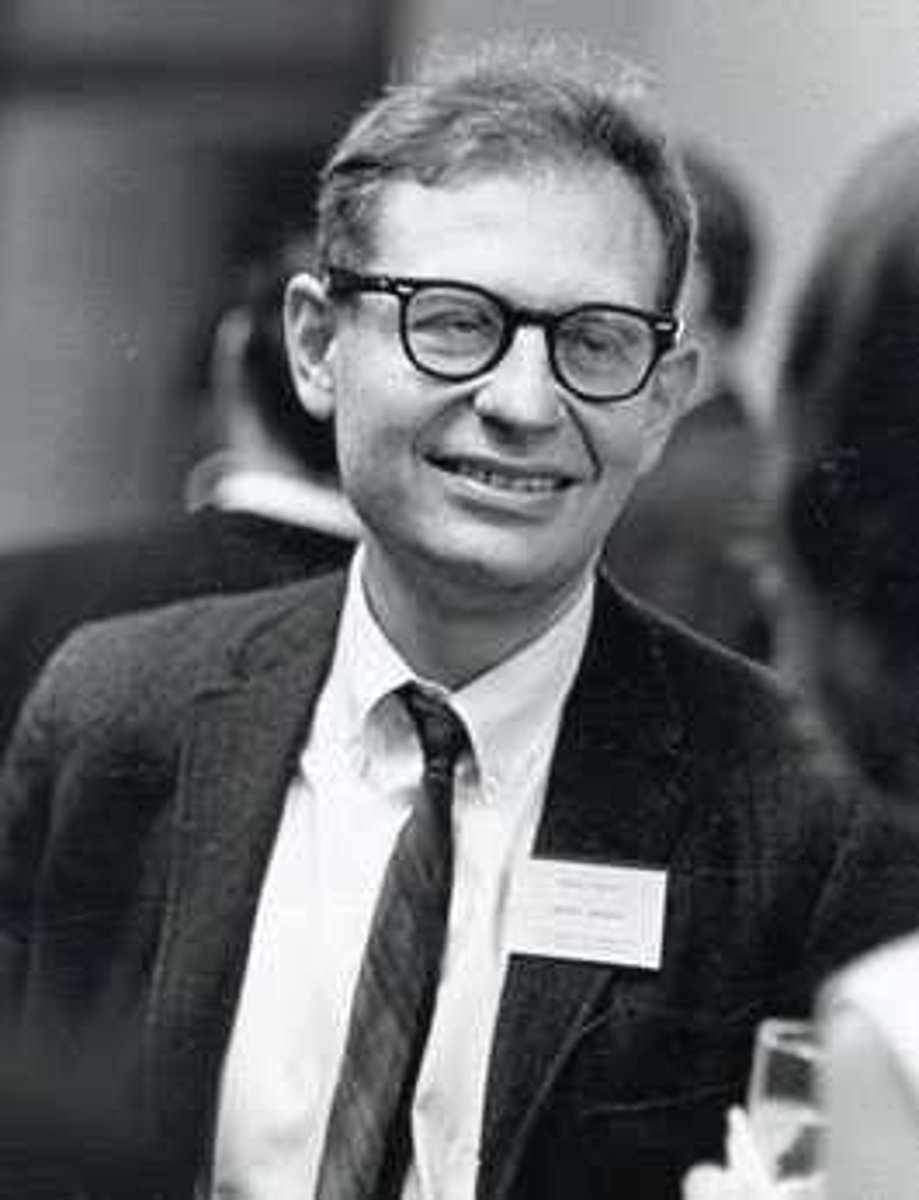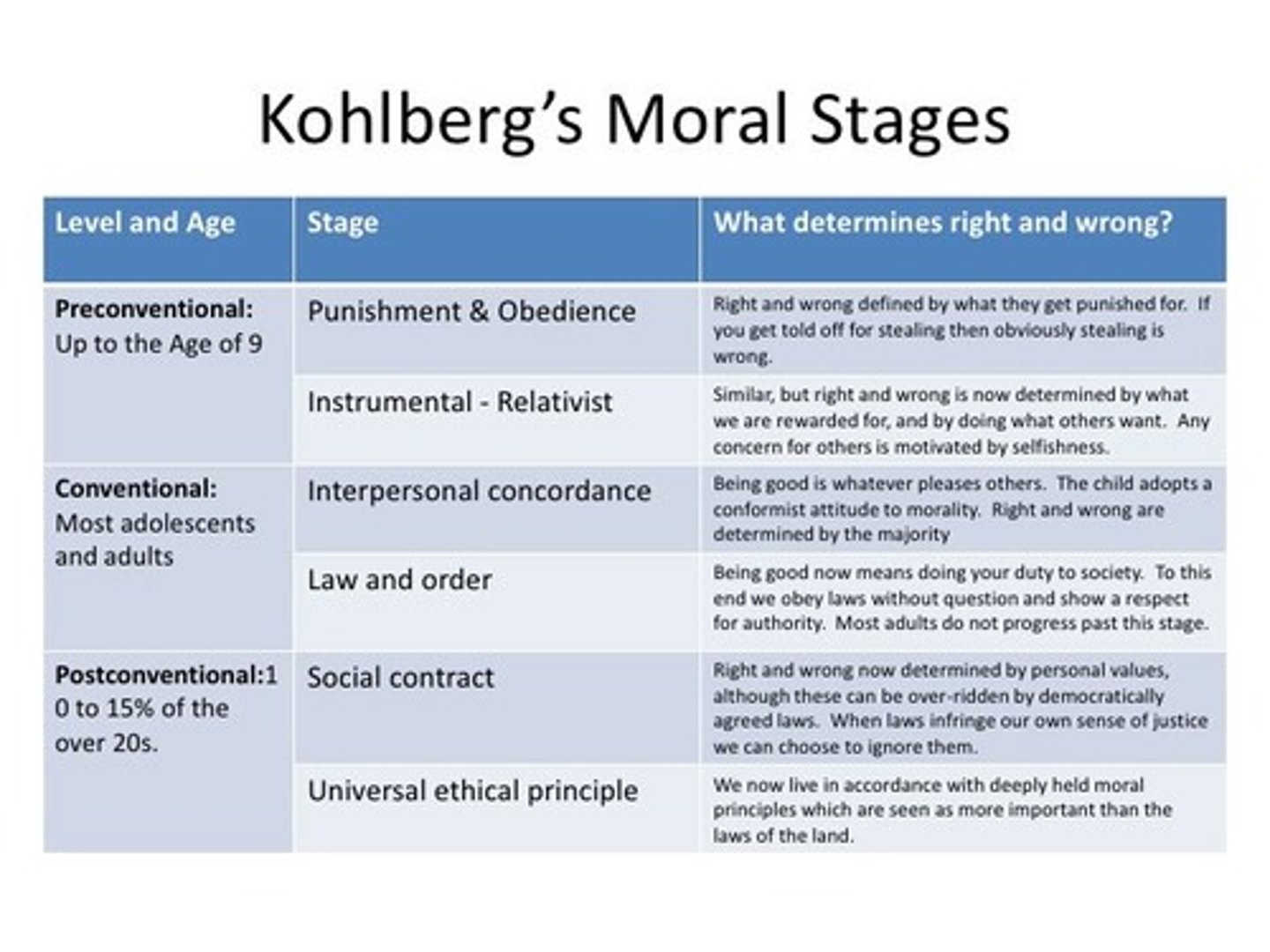Kohlberg
1/7
There's no tags or description
Looks like no tags are added yet.
Name | Mastery | Learn | Test | Matching | Spaced | Call with Kai |
|---|
No analytics yet
Send a link to your students to track their progress
8 Terms
Lawrence Kohlberg
-Started the theory to moral reasoning
-Born in Brownxville NY in 1927
-Died by suicide in 1987
-Published theory in 1958
-Child of divorced parents who seperated when he was 4 and then divorced when he was 14
-one of the 4 siblings were shuffled every 6 months to mom or dad
-attended Philips Academy in MA
-Nonviolent activist in establishment if State of Israel and lived on a Kibbitz
-Returned to the US and was educated at U of Chicago and Harvard

Stages of Moral development
-Inspired by the work of Jean Piaget
-Kohlberg was fascinated with children's responses to moral dilemmas
-believed educators could influence moral education and development
-moral development occurs alongside soical and cognitive developmen
-the more complex the social environment is the more diccucult the moral dilemmas are
-in order to cope with these difficult moral dilemnnas, people move toward more mature moral stages

Stage 1- obedience
-Preconventional Period
following rules set by an external force to avoid punishment
Stage 2- self-interest
-Preconventional Period
motivated by the desire for reward of personal benefit
Stage 3-conformity
-Conventional Period
-motivated by anticipation of disapproval of others
Stage 4-law and order
-Conventional Period
motivated by anticipation of dishonor, guilt
Stage 5-human rights
-postconventional period
concerned with maintaining respect of equals and the community
Stage 6-universal human ethics
-postconventional period
concerned with self-centralization for violating one's own principles